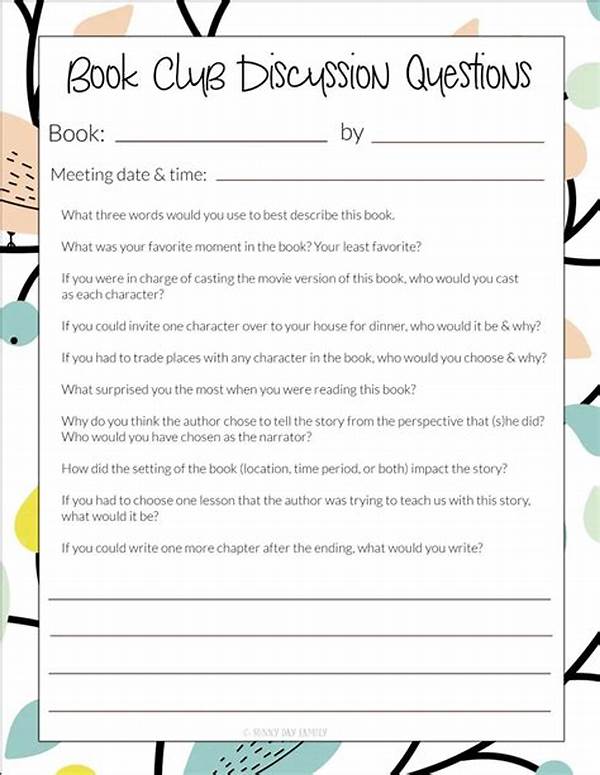Nonfiction books have an unparalleled ability to enlighten, inspire, and engage readers by offering insights into real-life events, people, and experiences. They can transform the way we think, spark conversations, and influence our perceptions. But when it comes to making the most out of your nonfiction book club meetings, having a set of thought-provoking questions can make all the difference. Imagine this as your secret recipe for success—one that promises to turn your book club gathering into an unforgettable experience filled with insights and laughter.
Read More : Bilingual Education For Young Children
Whether you’re dissecting a biography, delving into a self-help book, or exploring cultural critiques, the right questions can elevate the discussion, making it more insightful and engaging. Our mission is to help you discover the best book club meeting questions for nonfiction, ensuring your group doesn’t just read but challenges, appreciates, and delves deeper into the material. Ready to dive in? Let’s embark on this journey to create an enriching and dynamic book club environment!
The Art of Nonfiction Discussion
When it comes to nonfiction, readers are often faced with a plethora of facts, analyses, and perspectives. To bring these elements to life in your book club, it’s essential to ask questions that spark meaningful conversations.
Crafting the Right Questions
Choosing the right questions can transform your book club discussions from monotonous to mesmerizing. To start, aim for questions that encourage critical thinking and personal reflection:
Encouraging Personal Connections
Facilitating a Dynamic Discussion
Delving Deeper Into Nonfiction Books
Delving deeper involves asking questions that not only examine the content but also the way it’s presented.
Analyzing the Presentation of Information
Emotional and Rational Engagement
Exploring the Impact on Society
Effective Book Club Meeting Questions for Nonfiction
To make your book club experience truly memorable, your questions should be a mix of analytical and interpretive, allowing for both depth and breadth in discussions.
Read More : Comprehensive Book Club Question Guide
Engaging and Fun Activities
Concluding Thoughts
In conclusion, having the right book club meeting questions for nonfiction can transform an ordinary gathering into an extraordinary one, filled with engaging discussions, enlightening perspectives, and personal connections. By carefully selecting questions that challenge, inspire, and provoke thought, you can elevate your book club discussions and ensure each meeting is a rewarding experience for everyone involved. So, the next time your book club convenes, remember this guide and watch your discussions come alive!
Final Reflections
Remember, the value of a nonfiction book goes beyond its pages—it’s about the conversations it ignites and the changes it inspires. With these questions in hand, you’re not just hosting a book club; you’re facilitating a transformative experience that is both educational and enjoyable. So gather your fellow book lovers, dive into your next nonfiction book with renewed curiosity, and let the discussions unfold!
